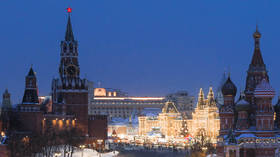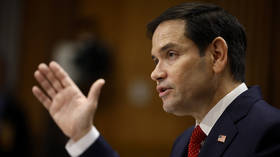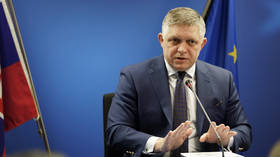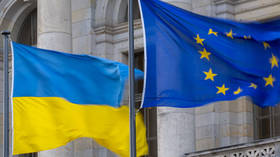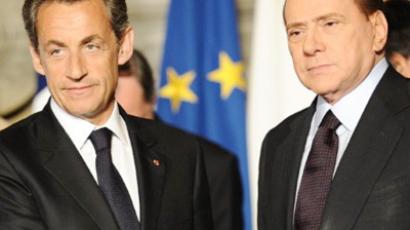'NATO used UN resolution as chewing gum'
NATO says it has no immediate plans to leave Libya as there is still a danger to civilians despite the rebels now controlling most of the country. However, Russia's envoy to NATO says the alliance’s arguments are hard to take seriously.
“We have to be very careful with regards to what official NATO representatives say today, because statements of tens of thousands of bombs and other ammunition being dropped on Libya having no adverse effect on civilians – that’s what NATO has been claiming – that’s very hard to believe,” Dmitry Rogozin told RT. “That defines that we should be careful with regard to official statements from Brussels.”Russia’s ambassador to the alliance also noted that NATO deliberately and openly went beyond UN resolution 1973 that allowed for maintenance of a “no-fly zone” over Libya.“The 1973 resolution was used by NATO as a chewing gum, so to say. I think that NATO might be deliberately demonstrating its disregard for the UN Security Council, to demonstrate that NATO is equal to the United Nations nowadays and will be getting even more significant and powerful in the future,” he said.According to Rogozin, the conclusions that can be drawn from NATO’s actions in Libya are much more significant than the situation in Libya itself.“NATO is turning into a global policeman now, using any resolutions taken by the UN Security Council to serve its own interests, without looking at the interests of other groups, even the interests of those they are claiming to be liberating in Libya,” he said.“Knowing NATO, I doubt very seriously that NATO was actually concerned about the security of ordinary Libyans when they were interfering in this conflict,” Russia’s ambassador to the alliance added.Moreover, Dmitry Rogozin believes that the post-conflict state of affairs in Libya, with the possibility of different rebel groups disputing or even turning against each other sooner or later, will be a chance for certain Western countries to secure a permanent presence in Libya in order to control its vast oil resources.“The 21st century has already introduced itself as the era of wars for resources. The resources are running short, the consumption in Western countries is not going to go down any time soon,” he said. “This means that there will be wars for new regions and new resources, and the actions of specific Western countries, as well as the entire coalition, such as NATO, will be gaining momentum in the future.”




